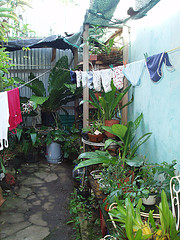- 1 read

While many in the United States enjoyed fireworks on the Fourth of July, a report was published indicating that as a nation we were “greener and happier” 20 years ago. Our overconsumption of resources does not necessarily correlate with increased well-being, and well-being can be achieved without excessive consumption, the report shows.
Though the United States did not rank high, 114 out of 143 countries indexed, the Happy Planet Index 2.0: Why good lives don't have to cost the earth, illustrates how a good life can coincide with protecting our planet. The report ranked Costa Rica as the happiest, most ecologically-friendly place of the 143 countries that make up most of the world’s population.
The survey, published July 4 by nef, the new economics foundation, showed that Costa Ricans reported the highest satisfaction with life in the world, take care of their environment and have the second-highest average life expectancy of the Americas. In fact, Latin American countries make up nine of the top ten nations scored, nef said. This is the second such index undertaken by nef.
Between 1990 and 2005, a large portion of the countries indexed, approximately two-thirds, increased their Happy Planet Index scores; the three largest countries, the United States, China and India have had reduced scores.
Ecological Efficiency
By capturing the relationship between environmental impact and individual well-being, Happy Planet Index 2.0 measures the ecological efficiency with which nations provide long and happy lives for their residents. China and India were also “greener and happier” twenty years ago, the report indicates.
The report shows that residents of the Netherlands, the highest placed Western nation, on average live more than a year longer than United States residents and have similar levels of life satisfaction, but a Dutch resident’s ecological footprint isn’t even half of an average United States resident’s ecological footprint. It likewise shows that Costa Ricans live longer than we do, and report significantly higher life satisfaction with a footprint less than a quarter of a United States resident’s footprint. These two countries, and others, nef says, are far more ecologically efficient at creating good lives as the United States.
"As the world faces the triple crunch of deep financial crisis, accelerating climate change and the looming peak in oil production we desperately need a new compass to guide us. Following the siren's song of economic growth has delivered only marginal benefits to the World's poorest whilst undermining the basis of their livelihoods. What's more, it hasn't notably improved the well-being of those who were already rich, or even provided economic stability. Now we must use the Happy Planet Index to break the spell and chart a new course for a high well-being low-carbon economy before our high-consuming lifestyles plunge us into the chaos of irreversible climate change" says Nic Marks, founder of the centre for well-being at nef.
Islands, Middle-Income Countries
No one country indexed meets all three criteria of high life satisfaction, high life expectancy and one-planet living, but, nef says, the differences between countries illustrate that it is possible to live long, happy lives with much smaller ecological footprints than the highest-consuming nations. The report also shows that island nations perform well and that middle-income countries such as Latin American and South East Asian countries, like those in Latin America and South East Asia do well in achieving sustainable well-being. Rich, developed nations fared poorly.
Nef says the challenge for Western nations is to ensure meaningful lives rather than continue to increase wealth and consumption.

